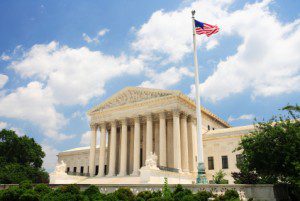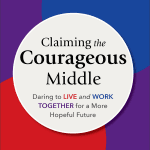 A friend asked me the following questions based on my blog post with Tom Krattenmaker on the recent change to the Voting Rights Act:
A friend asked me the following questions based on my blog post with Tom Krattenmaker on the recent change to the Voting Rights Act:
“Should unqualified individuals be allowed to vote? How do you propose to address voter fraud in a way that is more extremely simple and fair as providing qualifying identification?”
In response, we first need to ask if voter fraud is really such a big issue requiring enormous legislation, or if it is greatly exaggerated. Here’s what New York University’s Brennan Center (at the School of Law) claims concerning voter fraud:
• Fraud by individual voters is both irrational and extremely rare.
• Many vivid anecdotes of purported voter fraud have been proven false or do not demonstrate fraud.
• Voter fraud is often conflated with other forms of election misconduct.
• Raising the unsubstantiated specter of mass voter fraud suits a particular policy agenda.
• Claims of voter fraud should be carefully tested before they become the basis for action.
Here is the link to the full report.
In addition to looking to the Brennan Center, I decided to ask Lisa Sharon Harper, who serves as Director of Mobilizing for Sojourners. Here are her responses:
- Voter fraud as a phenomenon that needs massive legislation to stop is a myth. Check out the link for The Brennan Center’s report. It is a very reliable source.
- Voter ID: When voters register to vote, they have to show acceptable federal ID. To demand that they also purchase or pay the expense to obtain state-issued ID to vote at the polls places an undue burden on poor people, the sick and the elderly, who may not have the financial means or the transportation to drive to the site where the ID is obtained. They also may not have the financial means to pay for the additional photo identification card. In this way, the outcome of Voter ID laws is like that of the Poll Taxes that were required for minorities to pay during the era of Jim Crow segregation. It requires an extra fee to vote and that places an undue burden on less resourced people.
- One of the tactics of people who are trying to limit the ability of particular communities to vote is to narrow the “qualifications” of those who can vote. For example, in some states, one cannot vote if you have a felony record. Seems reasonable. Right? Well, that’s not the way it used to be. Here’s a report on felony disenfranchisement laws by The Sentencing Project.
The long-standing structural dynamics regarding racialization in our society (including the connection between race, economic exploitation and poverty bound up with such problems as the lack of inherited income going back to slavery) impinge on people’s accessing their ability to vote. Even if no one is out to keep people from voting, what many of us take for granted—the financial means and transportation—keep those economically less fortunate from acting on their right to vote.
Now while I reject the claim that voter fraud is a vast problem that requires major legislation, I understand that identification, if handled correctly, could be beneficial. If voter identification were truly free, and if people really had equal access rather than simply having the right to equal access and the right to vote, then it would seem appropriate. But that is just the problem: we don’t all have equal access and voter identification cards are not really free, especially for those without financial means and easy access to transportation. Unfortunately, democracy does not assure us justice for all in every situation, but simply the inherent right to justice for all. We need to make sure that we safeguard justice for all.
Some may say that putting in place voter identification is logical. That’s what makes it so hard to help white people like me see how wrong voter identification is currently for many minorities. We should not enforce voter identification, at least not until it is truly free and universally held by all.
We must make sure that everyone has equal access to voting, not simply the right to equal access. Equal access to voting is not currently available to everyone, especially when voter identification is required. For as Harper argues, “To demand that” voters “also purchase or pay the expense to obtain state-issued ID to vote at the polls places an undue burden on poor people, the sick and the elderly, who may not have the financial means or the transportation to drive to the site where the ID is obtained.”
On a related note, a friend asked me to explain how the Texas law noted in my piece with Tom Krattenmaker creates structural racism. I will quote at length a portion of a Brennan Center report. According to the Brennan Center,
The Texas State Conference of the NAACP and the Mexican American Legislative Caucus of the Texas House of Representatives (MALC) filed suit in federal court to block the state’s new voter ID law because it erects discriminatory barriers to voting in violation of the Voting Rights Act and the 14th and 15th Amendments to the U.S. Constitution.
A federal court in Washington, DC last year blocked Texas’s voter ID law under Section 5 of the Voting Rights Act, finding that the law would make it significantly more difficult for minority citizens in Texas to vote on Election Day. In June, however, the U.S. Supreme Court (in a separate case) ruled the formula used in the Act for specifying the states covered by Section 5 unconstitutional. As a result, Texas is not currently required to comply with the Section 5 pre-clearance provision. Just hours after the Supreme Court’s decision, Texas Attorney General Greg Abbott announced the state would implement the voter ID law.
In the complaint filed today in the Southern District of Texas, the Texas NAACP and MALC argue the voter ID law violates Section 2 of the Voting Rights Act because it makes it harder for hundreds of thousands of minority citizens to vote and denies minority voters an equal opportunity to participate in the political process. The measure was enacted specifically to exclude these groups, the filing contends, a discriminatory purpose that also violates the 14th and 15th Amendments to the U.S. Constitution.
The attorneys representing the civic groups in the case are the Brennan Center for Justice at NYU School of Law, Lawyers’ Committee for Civil Rights Under Law, Law Offices of Jose Garza, the national office of the NAACP, Law Office of Robert S. Notzon, Potter Bledsoe L.L.P., Dechert LLP, and The Law Offices of William Bonilla, P.C.
“Texas’ photo ID law could prevent hundreds of thousands of eligible voters from casting a ballot, including a disproportionate number of minorities,” said Myrna Pérez, deputy director of the Democracy Program at the Brennan Center. “The court was right to block this law in 2012, and nothing has changed since then. We urge this court to stand up for voters and ensure elections remain free, fair, and accessible for all eligible citizens.”
“The right to vote is the cornerstone of our democracy. Unfortunately, we continue to find ourselves in federal court defending this most basic right against Texas’ leadership,” said Representative Trey Martinez Fischer, Chairman of MALC. “Multiple courts have ruled that Texas has expressed a pattern of discrimination toward its growing minority demographic — from its cumbersome voter identification requirements to its penchant for drawing intentionally discriminatory legislative maps — and I expect that the courts will once again side with Texas voters over hyper-partisan lawmakers.”
“As we all know, Texas has a voter identification law that has already been ruled to be discriminatory by a three-judge panel in Washington D.C.,” stated Gary Bledsoe, president of the NAACP Texas State Conference. “This law is designed and intended not to counteract nearly non-existent voter fraud, but instead to disenfranchise minority voters. This will continue anti-minority voter dominance by drastically reducing the number of minority votes cast in each election.”
“The Texas photo ID law is the most restrictive voter ID law in the country, and the Texas legislature rejected numerous amendments that would have mitigated its impact,” said Bob Kengle, co-director, Voting Rights Project, Lawyers’ Committee for Civil Rights Under Law. “The evidence will show that large numbers of eligible voters in Texas lack photo ID, that the burden of obtaining photo ID will fall more heavily on minority citizens, and that voter impersonation fraud does not occur at polling places because the existing laws effectively deter it.”
While the GOP appears to be the focus of critique in many cases in the reports I read, my remarks are not intended in a partisan way. Indeed, I would hope that the GOP becomes increasingly diverse—to be shaped by a more diverse populace and representing it. See my earlier post on this subject. There I wrote,
Some Republicans fear that the Democrats will be viewed increasingly as the representatives of equality and justice and the Republicans the advocates of a two class system. The Republicans have a long way to go to be viewed as a party that welcomes minority groups.
I hope the Republican Party will make the necessary changes to be viewed truly as a party for everyone.
I also hope that all of us, regardless of our political stripe, will be discerning and vigilant in making sure that we don’t return to Jim Crow days. With this in mind, I call to mind a discussion with a white friend of mine, Robert Wall, who served as the Fire Chief in Palo Alto, California and in Portland, Oregon, where he was given the task to begin the process of diversifying the fire department racially. Mr. Wall asked and answered a few questions, as we discussed my earlier post with Tom Krattenmaker and the objections that people raise to the claim that Jim Crow days may be upon us in various states throughout the Union.
Fact question: Are legitimate voters being disenfranchised by the Voting Rights Act? That question has stood the test of time as “No.” Question 2: If states are free to pick apart civil rights for “We the people,” will they? Well, if history is any predictor of future behavior, there are states that have shown they will. I still can see southern Governors taking a stand against the National Guard to protect the right to oppress. “Just leave us alone,” was their message.
What is their message today? What is yours?
This piece is cross-posted at The Institute for the Theology of Culture: New Wine, New Wineskins and at The Christian Post.
















